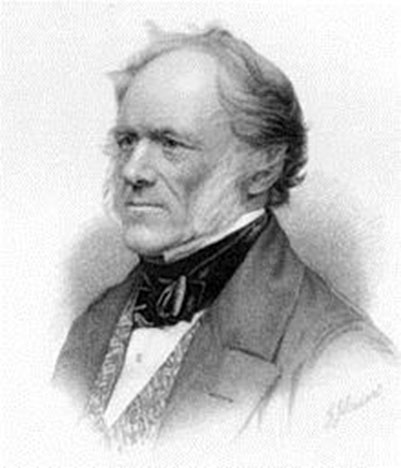
Charles Lyell (1797 – 1875) was a Scottish geologist who popularized and created the general acceptance of James Hutton’s concept of uniformitarianiam. Uniformitarianiam is the idea that physical features of the Earth were transformed by slow, gradual forces such as erosion and sedimentation which are still at work today.
Lyell was born into a family of wealth, growing up in an estate house with plenty of good farmland. His father was a botanist who exposed him to nature at an early age. Lyell attended Exeter College, Oxford in 1816 where his interest in geology was stimulated by lectures he heard by William Buckland – a man known for attempting to reconcile the biblical flood with geological observations. By 1823 he was elected to the Geological Society of London.
By the 1830s Lyell was ready to publish some books on geology and his first book published turned out to be his most famous and most influential book. Principles of Geology was published in three volumes from 1830 – 1833. In this book he used the concept of uniformitarianism to explain the Earths features. This was a very different concept from the conventional wisdom of the day, catastrophism, which stressed sudden, quick, and violent events. “The present is the key to the past” was the motto of his book. It means that all of the observable processes present today can be used to describe those of the unobservable the past.
Charles Darwin read Lyell’s work while on the Beagle, and it heavily influenced his thinking. As Lyell saw that geological forces active today were also active in the past, Darwin saw that biological forces active today were also active in the past. The slow, gradual change of a species from generation to generation is what led to speciation, a position on which Lyell gradually came to accept over time, offering a lukewarm endorsement of Darwin’s evolution by natural selection in his Antiquity of Man in 1863.